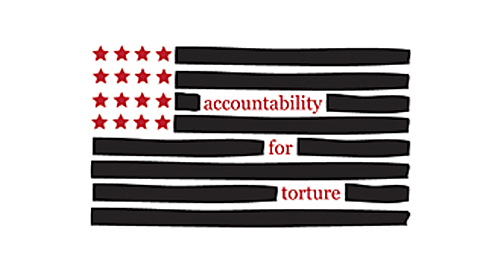
Originally posted on .
Of the thousands of , a particularly remarkable one is a analyzing whether the 's "enhanced interrogation techniques" violate the Convention Against .
The memo concludes that they do not, but its most haunting passage appears in a footnote. The footnote describes the last waterboarding of .
According to the footnote, CIA interrogators determined that, after 82 waterboarding sessions, Abu Zubaydah was "compliant". Still, some officials at the CIA's headquarters believed that he was withholding information. Those officials overrode the objections of interrogators at the secret prison where Abu Zubaydah was being tortured, and they ordered that he be waterboarded yet again.
They dispatched officers to witness the session. The footnote does not describe what took place, but it does describe its result: nothing. The final waterboarding session was "unnecessary", and the envoy reported back, according to the clinical account of the footnote, that "enhanced techniques were no longer needed." What the footnote does not record is Abu Zubaydah's torture.
The memo captures some of the deeply disturbing aspects of the torture that took place in America's name. It illustrates the bureaucracy of the CIA's interrogation program. It also illustrates that, while there were too many interrogators willing to follow unlawful orders, those orders originated at the highest levels of government from leaders committed to the abusive interrogation regime they had authorized. Senior CIA officials meticulously directed every aspect of the interrogations, including the decision to waterboard Abu Zubaydah for the 83rd time.
I revisited the memo today, Tuesday 26 June, because it is , which commemorates the anniversary of the day, 25 years ago, that the Convention Against Torture became a binding legal obligation for the countries that signed it. On this day, the president typically issues a statement reaffirming America's commitment to the Convention Against Torture.
Until recently, these statements generally underscored the importance of investigating and prosecuting all acts of torture. But in the last few years, the reference to investigation and prosecution .
President Obama campaigned against the use of torture, but even before assuming office, he dismissed the possibility of investigating senior officials who authorized it. He explained that "we need to look forward as opposed to looking backwards." The explanation was as political as it was illogical: all crimes occur in the past. Looking forward and not backward means simply ignoring crimes.
But for the most part, Americans have heeded the president's advice. The outrage at the Bush administration's excesses, so palpable when the "torture memos" (including the 30 May 2005 memo) were released, has largely dissipated.
The administration has also been unsympathetic to claims for redress brought by torture victims. At the insistence of the executive branch, American courts have dismissed on procedural grounds every single lawsuit brought by victims of torture seeking official recognition of their ordeal and redress for their suffering. Perhaps the most pernicious of these procedural obstacles is the "state secrets" privilege, which the administration has invoked to shield grotesque abuses of prisoners from any judicial review.
Although the current administration released critically important documentation of torture and abuse of detainees (many in response to Freedom of Information Act litigation by the └¤░─├┼┐¬Ż▒Żß╣ű and other public interest organizations), it has staunchly opposed disclosure of other key records. It continues to withhold hundreds of CIA cables describing the use of waterboarding and other harsh techniques, hundreds of photographs of detainee abuse throughout Iraq and Afghanistan, and the presidential memorandum that authorized the CIA to establish its secret prisons overseas.
The initial stream of disclosures dried up as the administration took ever-more extreme positions in court, arguing, for example, that it could suppress descriptions of conduct that it conceded was unlawful. The result is that the public record of American torture is still incomplete.
There is another, related problem: the government has yet to create a single, official report documenting the post 9/11 abuses. There is hope that the Senate Intelligence Committee will fill the void when it completes its long-expected report on the CIA's program later this year. In the meantime, the └¤░─├┼┐¬Ż▒Żß╣ű today is launching the to help fill the transparency gap. Our database allows researchers and the public to conduct sophisticated searches of thousands of documents relating to the Bush administration's policies on rendition, detention, and interrogation.
When the president today champions the Convention Against Torture this year, it is worth comparing his rhetoric to the absence of action. Adherence to the requirements of the convention will always be politically fraught. But until we confront and account for the horrific abuses committed in the name of America's national security, we cannot turn the page on the shameful legacy of the last 10 years.
Learn more about torture: Sign up for breaking news alerts, , and .

